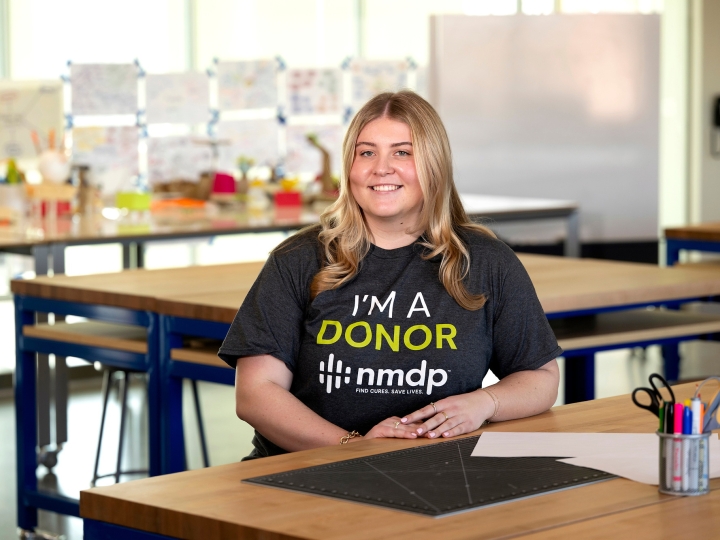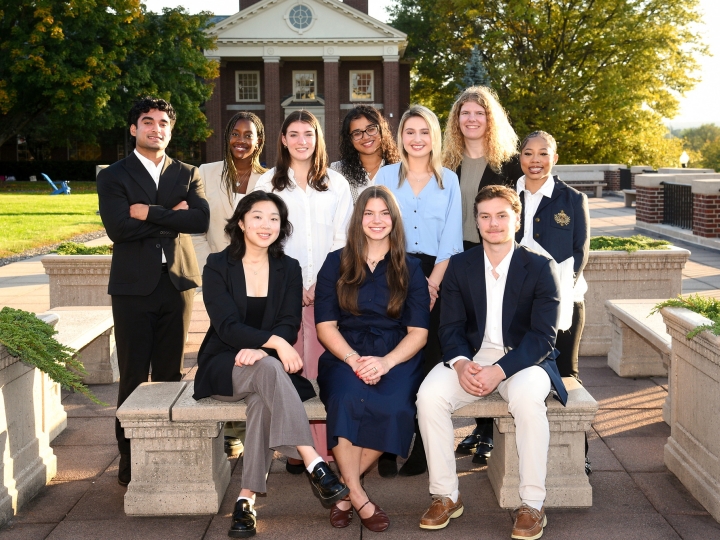Nest Eggs
August 19, 2015
Growing up in the rural West Nile region of northern Uganda, Imran Ejotre M'15 witnessed some of his country's darkest days, a period of political turmoil that stymied economic development and gave rise to conflict among rebel groups. But amidst that harsh reality, Ejotre also saw the resilience of a people who refused to relinquish their hope for a better life.
"The people in this region have never given up and could easily be the most hardworking group of people in the country," Ejotre said. "For instance, in less than a decade of relative peace, the people have developed their regional city, Arua, which in April 2015 received the Continental Excellence Award as the second-best town in Africa under the small cities category for the progress made amid political and economic setbacks."
Ejotre, who began pursuing a master's in biology at Bucknell in spring 2014, wants to contribute to that growth and is spearheading an effort of Bucknell students, alumni and faculty to help rural Ugandans better their lives in a novel way. The Nested Savings program, which Ejotre co-founded with Ghanaian Bucknell alumnus Caesar Vulley '15, trains families in northern Uganda to keep chickens for egg production and provides a marketplace where they can exchange those eggs for income.
The project aims at building resilience in communities that face shocks and stresses such as annual crop failures due to adverse climate effects," Vulley said. "As an alternative to crop production, which is the primary source of food and income, we proposed poultry farming as a viable means by which the people of rural Uganda can maintain financial stability and bolster food security."
Under Nested Savings' model, eggs are brought to a collection center, the Egg Bank, on a weekly basis and are then sold in regional markets. A portion of the profits is returned to each family while another portion is kept in savings for each household. Some income is also withheld to cover operating costs, recover the initial capital lent to each beneficiary and support new beneficiaries in starting egg-farming projects.
The project was awarded a $36,750 seed grant from the ResilientAfrica Network enabling Nested Savings to establish a pilot program with 35 households between July and December. To help get his program off the ground, Ejotre turned to Bucknell, a university he knew had the resources and expertise to help the idea flourish.
Ejotre had spent three years working as a field assistant and research scientist on biodiversity expeditions to South Sudan led by Professor DeeAnn Reeder, biology, an experience that led him to pursue a master's at Bucknell. With help from Reeder and Vulley, Nested Savings formed an advisory council consisting of Reeder; Professor Eric Martin, management; former Bucknell President Gary Sojka; and University of Pittsburgh Professor Louis Picard.
They also convened a small local team to manage the project on the ground in Uganda and a larger team of recent Bucknell alumni and current students who will manage the program's website and coordinate fundraising, volunteer and awareness efforts in the United States.
"Bucknell students are already helping spread awareness about Nested Savings. I've seen many people on Facebook share the project's homepage and it's awesome to see such enthusiastic support so early on," said Katherine DeRuff '16, the program's director of communications. "The more people who know about our project, the more likely we are to get the support and funds we need to get rolling in Uganda. We are the next generation that has the potential to do great things in this world and it all starts with support from fellow classmates."
"We are grateful to all who have supported and contributed to our cause in one way or another, including President John Bravman," added Vulley.
The program joins other Bucknell alumni-led efforts to aid people in developing countries through direct micro-lending, including KIVA, co-founded by Jessica Jackley '00; and Bicycles Against Poverty, founded by Muyambi "Dick" Muyambi '12 and Molly Burke '10. | Read more about Bicycles Against Poverty in Bucknell Magazine.
Martin, who studies international development and served two years in the Peace Corps, said those previous programs offered Nested Savings a clear model of success to build on. But even if the program doesn't grow into the cooperative its founders envision, Martin said the effort will teach them valuable lessons in micro-enterprise that will make their next venture even more successful.
"Regardless, they will have helped many rural families learn about small business and investing in their own growth and change," Martin said, "and hundreds of folks will simply have a higher standard of living due to the birds and eggs. That is an incredible bottom line for any project."

